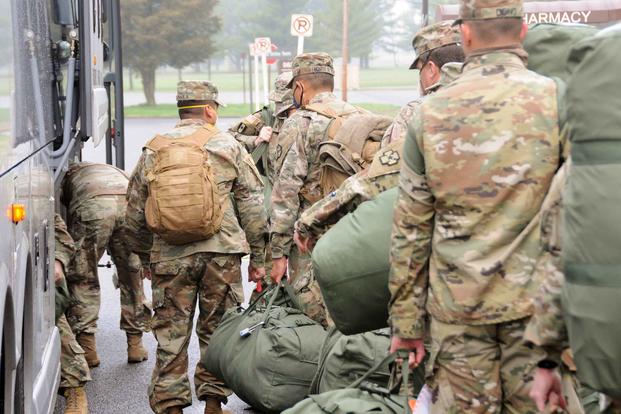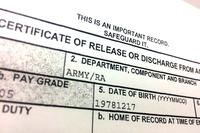Some Reservists may be exempted from mobilizations if they are employed in a job that is deemed essential by the government.
Members of the Ready Reserve are the group most likely to be recalled to active duty if there is a recall due to a national emergency, and within the Ready Reserves, the Selected Reserve are the group that is most likely to receive recall orders. If deemed necessary, the Individual Ready Reserve (IRR) would be called to active duty next, followed by inactive reservists and retirees.
The Individual Ready Reserve
The IRR is mostly made up of those who have previously served on active duty and remain committed to the military for the remainder of their contract. The minimum length of service for anyone joining the military is eight years. Most current enlistment contracts require service members to serve four years of active duty, followed by another four years of IRR service. That leaves most one-term service members subject to recall at any time during those remaining four years.
The IRR differs from the Active or Selected Reserves because they aren't required to drill and don't get paid.
Since most IRR members do not drill or receive pay, they often don't think about the effects a recall would have on them, their families, employers or communities. However, the military exempts some of those IRR members from recall if mobilization would cause "extreme personal hardship" or "extreme community hardship." IRR members who are studying to become members of the clergy and some government employees are also exempt from activation and recall.
Usually, civilian employers report an employee's status as an "essential employee" to the government when hiring that employee. Normally, they recertify that status to the government annually as part of other reports. However, as a result of the COVID-19 epidemic, the definition of an essential employee has become somewhat confusing.
What Exactly Is An Essential Employee?
As you may guess, the military defines an essential employee a bit differently than the general public does. While the public may say that grocery store workers and food delivery drivers are considered essential employees during the COVID-19 crisis, the military most likely doesn't agree.
According to the military, an essential civilian employee is one whose mobilization would have a "substantially adverse effect on the health, safety, or welfare of the community."
The sole owner of the only grocery store in town may qualify as an essential employee, as may public safety workers, healthcare workers, IT professionals at schools, or those involved in the production of medical protective gear. While just 12 short months ago those positions were not necessarily considered essential, they now may be, depending on the situation.
To that end the Department of Defense will review all one million plus IRR members to determine exactly who is and isn't an essential employee in their local community or to the nation in general. The military will take many things into consideration when making their determination.
For example, an emergency room nurse in a location that has many citizens affected by COVID-19 may serve a more valuable role in their community than they could if recalled to active duty. However, an emergency room nurse living in an area that has few COVID-19 cases may better serve their nation by being mobilized and deployed to an area that faces a health care crisis.
The government will look at many factors when making a determination such as the length of time it may take an employer to train a replacement, any special skills or knowledge held by the reservist that would be difficult to duplicate, the individual business' or community needs and so on.
If a reservist is found to be an essential employee for the government's purposes, they will either be transferred to the standby or retired reserve, or will be discharged from their reserve commitment. Employers can challenge DoD’s decision if they disagree that an employee either is or isn’t essential. If you believe you hold an essential position you should contact your employer’s human resources department for more information.
Want to Know More About the Reserves?
Be sure to get the latest news about the Reserves, as well as critical info about how to join and all the benefits of service. Subscribe to Military.com and receive customized updates delivered straight to your inbox.
















